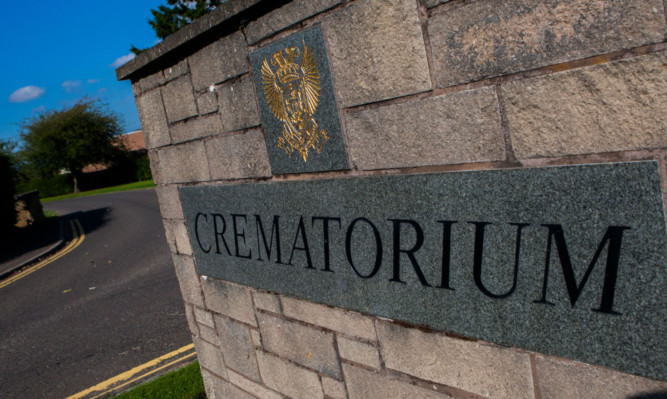Council bosses are bracing themselves for a fresh legal feud over extremely contentious plans to build a new road near Perth crematorium.
Campaigners have outlined their arguments against the proposed relief road part of a massive city expansion project that they claim would be a breach of human rights.
The row focuses on the disruption of land on the edge of the crematorium, where families are known to have scattered the ashes of loved ones.
Luncarty, Redgorton and Moneydie Community Council has revealed that its legal challenge could boil down to who owns the ashes. The group’s Alex Cook said the question was investigated by Perth and Kinross Council’s legal team but the results were unclear.
“We believe that since the issue of possession of human remains is inconclusive and not beyond reasonable doubt, it is subject to challenge under human rights legislation and the European Court of Human Rights,” he said.
He said the community council prepared its case using the results of Edinburgh City Council’s investigation into practices at Mortonhall Crematorium. “The report places much emphasis on the profound need of the bereaved to have a focal point for their grief,” he said.
“Members of the community have expressed the view that removal of the ashes is a betrayal of trust and promise made by Perth and Kinross Council to provide a ‘Timeless tribute’, as stated in the official PKC Crematorium leaflet.”
The new road has already won planning permission, despite widespread opposition. It will be the first phase of a huge development masterplan for the western edge of the city.
Mr Cook said the community council has secured vital backing from Planning Aid for Scotland (PAS) to take its fight to the courts.
The local authority is also facing a separate legal challenge from St Johnstone FC, which claims the road will destroy its £100,000 training pitch.
In a report to the council from February, executive director (environment) Jim Valentine states: “With regard to ashes that may be scattered in the affected area, the council has obtained legal advice and officers conclude that the scheme is not incompatible with the right to property under the European Convention of Human Rights.
“It is not clear that ashes that have been scattered are capable of being considered as possessions.”
He added: “Nevertheless, were it to be established in law that rights of ownership might attach to ashes that have been scattered, as opposed to stored, the council has given careful consideration to minimising the impact of the scheme on any ashes that may be located on the land that is to be appropriated, including ensuring that the ashes will remain within the grounds of the crematorium.”
